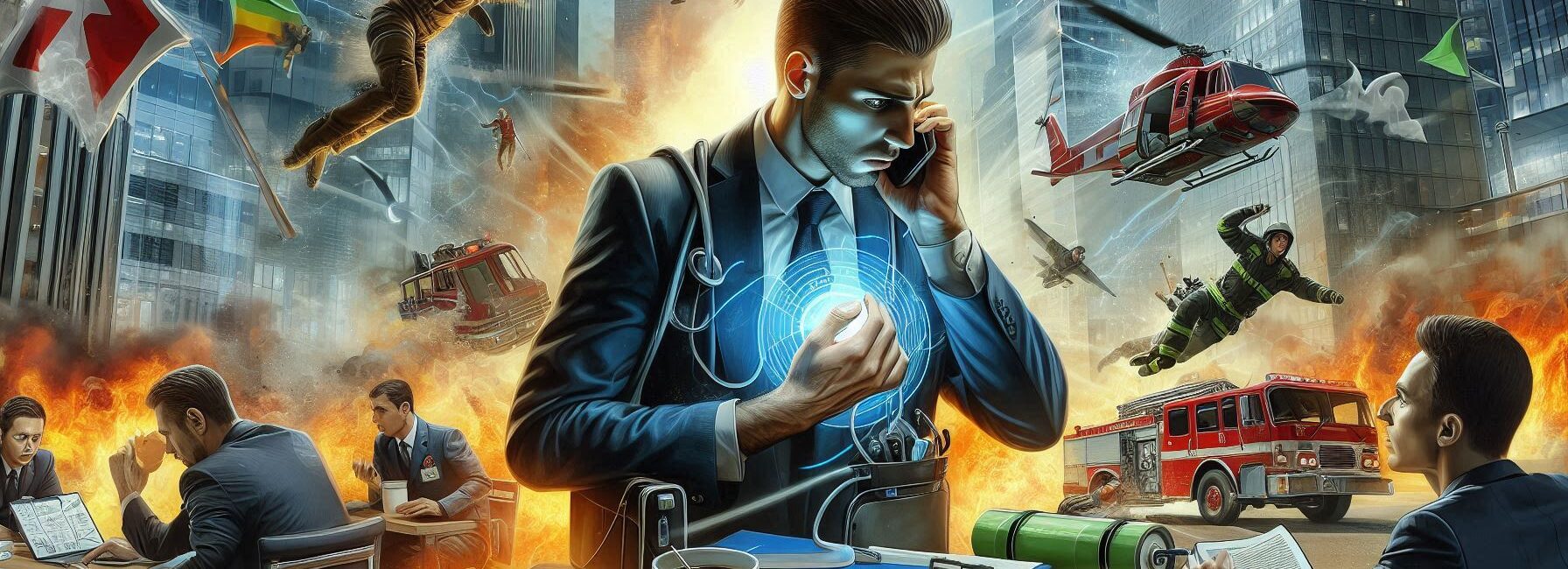Last Updated on November 2, 2025 by Kevin Collier
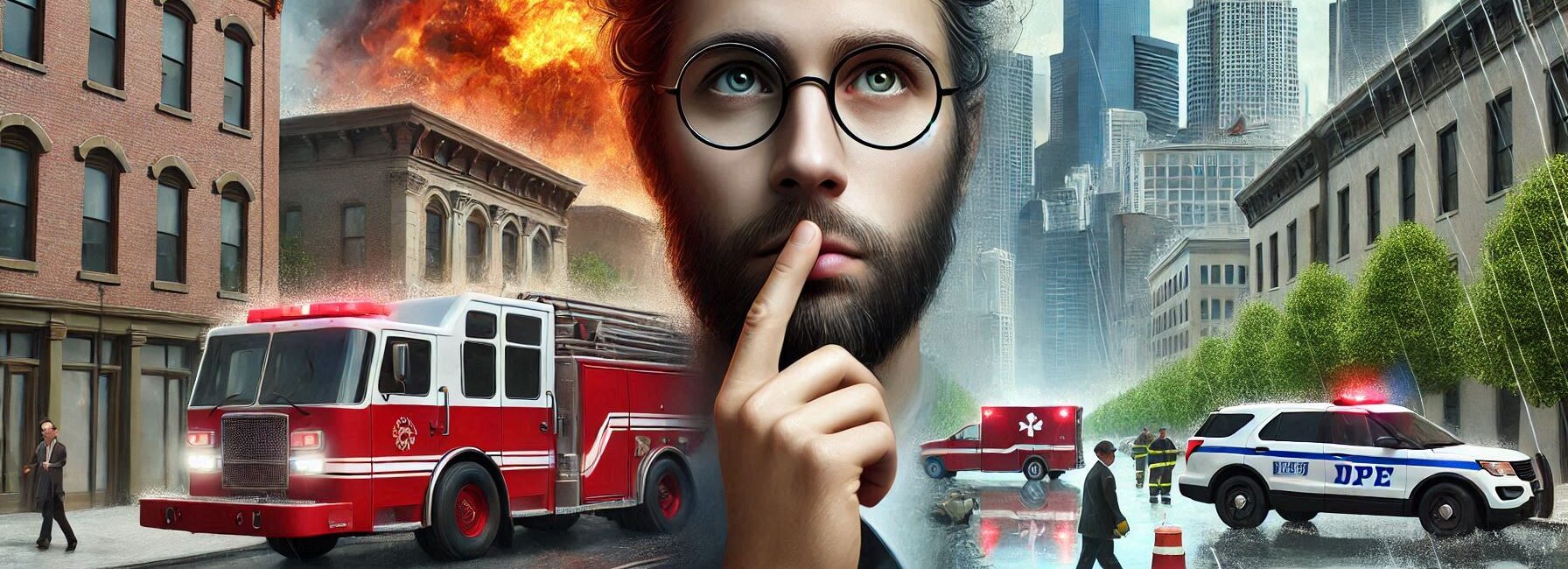
Top Takeaways and Key Concepts
– Focus on your breathing to reduce anxiety and regain composure quickly.
– Assess the situation before reacting to understand the best course of action.
– Create a simple action plan to tackle immediate problems systematically.
– Limit distractions to enhance your concentration and decision-making ability.
– Seek support from others to share the burden and feel more secure.
So, you’re out camping, soaking up nature, and then—oh no! Your buddy sets the hot dogs on fire instead of cooking them. Yikes! Your heart might race. Panic is real in moments like this. Do you grab water? Or do you just run away?
Please Note: This post may contain affiliate links. If you click one of them, we may receive a commission at no extra cost to you. As an Amazon Associate, I earn from qualifying purchases.
Staying calm is key. Taking a big breath helps. And hey, accidents happen. We’ve all been there. Even the best campers have had a hot dog disaster.
Think about the fire. Is it big? Or just a small flare-up? If it’s small, grab a blanket or jacket. Smother it! You can always toss some dirt on it too. That works! But if it’s getting wild, calling for help is okay. Safety is what matters most.
In a crisis, our brains can get really scrambled. Kind of like a breakfast treat, but not very useful. We might forget what to do! So, here’s a little tip—always have a plan. Talk it out with your friends before things go haywire. That way, you know what to do if something crazy happens.
Stay aware of your surroundings too. Look for water nearby or even a safe spot to run if you need. Knowing your camping area helps keep everyone safe.
And after an eventful night by the fire, laugh about it later! You’ll have a great story to tell. “Remember when the hot dogs turned into a campfire show?” That’s what camping is all about. Fun, friends, and sometimes a bit of chaos! Just roll with it, my friend.
Recognizing Signs of Stress
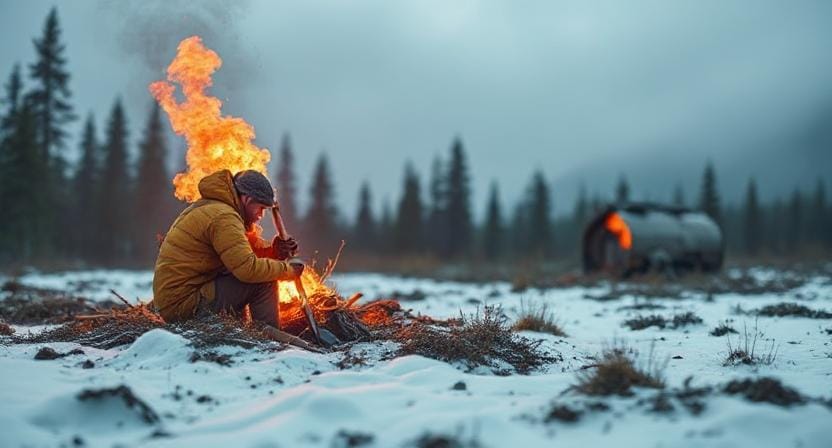
*** Shop for Survival Gear - Tools - Kits ***
Survival Gear - Bags and Backpacks - Knives - Boots/Footwear - Communication
Outdoor Cooking - Gloves - Hydration - Dry Boxes - Water Filtration Systems
Tents - Sleeping Bags - First Aid Kits - Multi-Tools - Flashlights - Fire Starters
Navigation - Survival Food - Night Vision - Headlamps - Stun Guns - Binoculars
Let's talk about stress first. It sneaks up on us like a raccoon that we didn't expect to see at our campground at 2 AM. You might feel your heart beating or your palms sweaty, which are classic symptoms that stress is trying to take over your brain. By the way, knowing these signs is half the battle.
I was lost again on a trek, and my mind was racing with worries like, “What if I'm stuck here forever?” or “Will they send a pizza search party?”
I took a big breath and accepted that I was stressed out instead of panicking. This simple thing helped me get my mind back on track and figure out what I needed to do next, like finding my way back without making every tree into a possible landmark.
Breathing Methods That Really Work
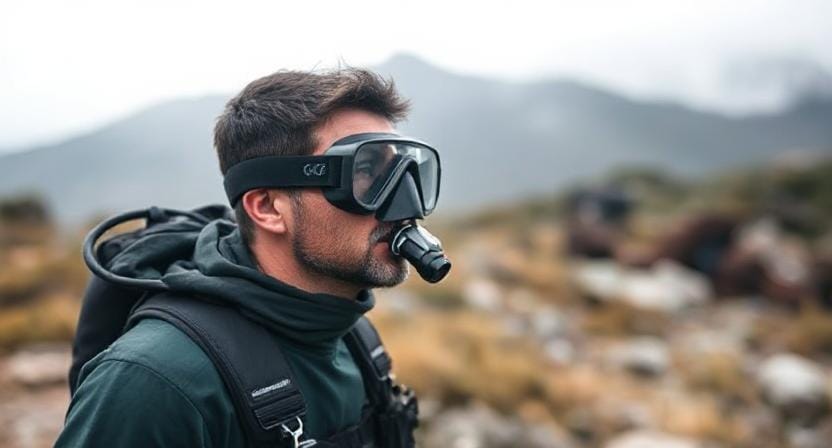
Speaking of breathing, let's look at some ways to calm those nerves that are getting out of hand! Take a deep breath when you feel like you can't handle it. You know how when you breathe in, it seems like you're smelling cookies that just came out of the oven, and when you breathe out, it feels like you've eaten too many? It may sound stupid, but believe me, it works.
Box breathing is a common technique. Imagine drawing a box in the air. Breathe in for four counts, hold for four counts, breathe out for four counts, and hold again for four counts. Then do it again.
It works amazingly well! And hey, it offers you something to think about other than worrying about whether you brought enough snacks for your trip.
Focus on What You Can Do
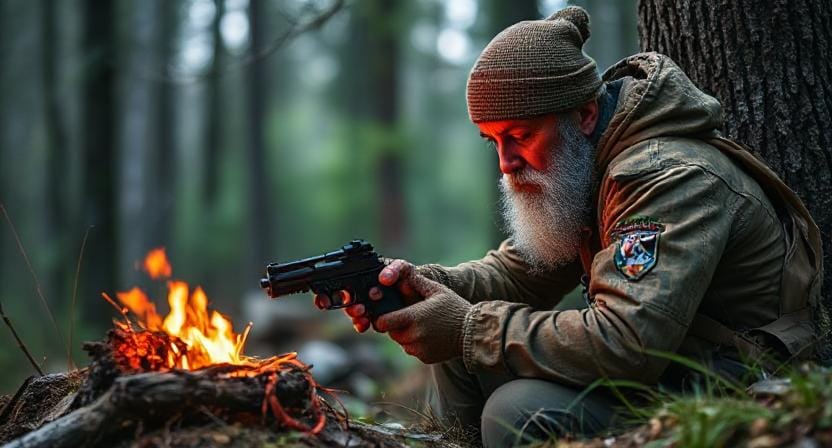
Now let's get down to business: what can we do when things go wrong? The solution is simple: what we do and how we react! When things are tough, it's easy to get stuck on all the “what-ifs.” What if it rains? What if I can't find any food? What if my tent becomes a pool that blows up?
Instead of focusing on these unknowns (which simply makes you more anxious), put your attention into something you can do.
When it rains unexpectedly when you're camping, don't worry about your wet socks; instead, focus on keeping your gear safe. Keeping this in mind will help you stay focused so you can deal with each problem as it arrives.
See Yourself Succeed

Here's another cool trick: imagining things! Picture yourself getting through whatever pandemonium is going on around you, like getting away from bears with only marshmallows (well, maybe that's a bit much). Visualization makes your mind ready for achievement by making positive mental connections.
Before you go on an outdoor excursion or do something scary, take a few minutes to picture how you'll handle any problems that come up calmly and productively.
For instance, picture yourself peacefully setting up camp even if things go wrong or confidently lighting the campfire without burning off your eyebrows (again). Having a plan will be good for your brain!
Stay in Touch With Other People
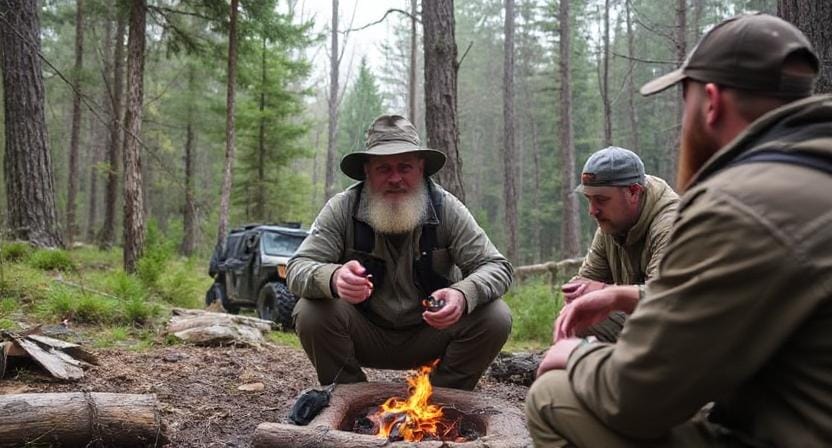
It's interesting that social support is so important for staying calm in emergencies. Having someone else there can make all the difference, whether it's buddies around the campfire or other hikers giving you tips along the way.
When things get tough and fear starts to sneak in (like when you see a squirrel that is too friendly), ask the people around you for help and support. Talking about your problems can frequently make them feel a lot lighter. Also, laughter is a better way to calm down than attempting to argue with squirrels.
Practice Makes Perfect
So here's the deal. The most important thing is to practice! It's like learning how to set up a tent without feeling weird. It really does take time. And you know what? You also need to practice being calm when things get rough.
Picture this: you're cozy at home, maybe with a cup of hot chocolate. Why not act like you're stranded in the woods? Or picture being out camping and it suddenly starts to rain. It may sound dumb, but it works.
It's like working out your brain when you think about these situations. When genuine things happen, it's simpler to deal with them if you're used to surprises. You won't stress out as much. That would be lovely, wouldn't it?
Get some buddies! Turn it into a game. Someone can pretend to be the “lost hiker” while everyone else works out what to do. Just like getting ready for a great game night! Have fun, tell jokes, and work together. Your team gets stronger the more you work together.
When danger knocks on your door—a flat tire, a sudden rainstorm, or even a blazing hot dog—you'll be ready to deal with it. You'll be like superheroes who are peaceful! So, let's go for that. And if you goof up, that's okay. It's all part of the fun!
Frequently Asked Questions
Why is controlled breathing important during a crisis?
Deliberate breathing helps reduce physical stress responses and allows clearer thinking under pressure.
How does assessing the situation help?
Evaluating what is actually happening prevents emotional overreaction and supports more effective decisions.
Should I make an action plan during emergencies?
Yes, a simple step-based plan helps organize priorities and reduces panic caused by uncertainty.
Why is limiting distractions useful in chaos?
Removing unnecessary noise and confusion helps the brain process information more efficiently.
Can visualization improve crisis response?
Visualization builds confidence and mentally rehearses success before chaos occurs.
Why does support from others matter in stressful moments?
Shared effort reduces cognitive load and provides reassurance, improving calm thinking.
Does practicing crisis scenarios make a difference?
Yes, repeated practice creates familiarity, which lowers panic and increases control when real events occur.
Suggested Resources:
How To Stay Calm in a Crisis
https://www.psychologytoday.com/us/blog/the-moment-youth/202005/how-stay-calm-in-crisis
Crisis Management Tips
https://www.redcross.org/get-help/how-to-prepare-for-emergencies.html
Mindfulness Techniques for Stress Relief
https://www.mindful.org/mindfulness-how-to-do-it/

Kevin Collier is a seasoned survivalist and expert in prepping and homesteading, contributing to WiseSurvive.com. With a deep-rooted passion for self-sufficiency and outdoor survival skills, Kevin shares practical advice, strategies, and resources to help individuals prepare for any challenge. His informative articles cover a range of topics, from essential survival techniques to sustainable living practices, empowering readers to thrive in any situation. Whether you're a novice or a seasoned prepper, Kevin's insights will inspire you to take charge of your readiness and build resilience for the future.



